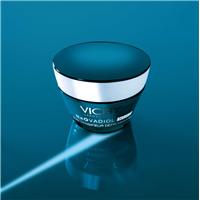
The menopause occurs in all women. It can occur when the ovaries spontaneously fail to produce the hormones oestrogen and progesterone, when the ovaries fail due to specific treatment such as chemotherapy or radiotherapy, or when the ovaries are removed, often at the time of a hysterectomy.
For most women, the menopause occurs when the ovaries naturally fail to produce oestrogen and progesterone when they have few remaining egg cells. At that stage, the ovaries become less able to respond to the pituitary hormones: follicle stimulating hormone (FSH) and luteinising hormone (LH) and less oestrogen is produced. Levels of FSH and LH subsequently rise. The resulting low, and changing levels of ovarian hormones, particularly oestrogen, are thought to be the cause of menopausal symptoms in many women.
The average age of the natural menopause is 51 years, but can occur much earlier or later. Menopause occurring before the age of 45 is called early menopause and before the age of 40 is premature menopause.
Menopausal symptoms affect about 70% of women, are believed to be due to the changing hormone levels, particularly oestrogen. For some people, life-style factors such as reducing/stopping smoking, reducing alcohol intake, reducing caffeine intake, reducing stress, eating healthily and taking regular exercise can considerably help the symptoms of menopause.
When do menopausal symptoms begin?
Many women notice early symptoms while still having periods, when the hormone production is declining very gradually. This stage of gradually falling and fluctuating hormone levels is often called the “climacteric”, the “change” or the pre-menopause and often begins when a woman is in her 40s and can last for several years. Because ovarian function fluctuates, women may experience menopause symptoms intermittently.
What are the symptoms of menopause?
There are many potential symptoms of the menopause and no two womens experiences are the same. Common symptoms are:
hot flushes
night sweats
dizzy spells
headaches
swollen breasts and tummy
weight gain
fatigue
insomnia
nervousness
anxiety
irritability
depression
a decrease in sex-drive
vaginal dryness
urinary disorders
increase in the risk of heart disease
osteoporosis
The hot flush, or flash, is well known as the classic menopausal symptom and affects 6085% of menopausal women. Hot flushes and sweats are called vasomotor symptoms and vary immensely in both their severity and duration.
For about one in five women, these can be very severe and cause significant interference with work, sleep and quality of life. Women are affected by vasomotor symptoms on average for about two years but, for about one in ten, symptoms can continue for more than 15 years. Each hot flush usually lasts 35 minutes and is thought to be caused by a change in the temperature-controlling part of the brain. A menopausal woman may flush with every temperature rise for example, moving between areas of different temperature or having a hot drink because of a change in the setting of the temperature control centre in your brain; your body thinks that it is overheating even when it isnt.
Other factors that can also cause flushes include being overweight, alcohol, excess caffeine, spicy foods, monosodium glutamate and some medications. Eating a healthy diet and losing weight if necessary can be helpful. Other simple measures that can help include:
wearing cotton clothing, rather than man-made fibres
wearing loose thin layers of clothing rather than thick tight-fitting clothes
keeping your bedroom temperature fairly cool at night either leave a door or window open or consider a fan (partner permitting of course!).
Even before the menopause is reached, the first changes in the body begin to make themselves felt. This transitional phase, known as the pre-menopause, gradually sets into a womans life at around the age of 45. Symptoms can be similar to those felt during the menopause itself, but are usually not as frequent or severe.
For every woman, there is help available if she needs it – diet, exercise, alternative therapies or even HRT can help to ease the symptoms and make this key life-stage more bearable.

